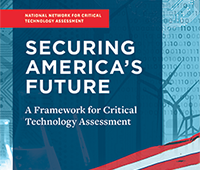 You might not need to remember those complicated email and bank account passwords for much longer. According to a new study, the way your brain responds to certain words could be used to replace passwords.
You might not need to remember those complicated email and bank account passwords for much longer. According to a new study, the way your brain responds to certain words could be used to replace passwords.
In “Brainprint,” a newly published study in Neurocomputing, researchers from Binghamton Univ. observed the brain signals of 45 volunteers as they read a list of 75 acronyms, such as FBI and DVD. They recorded the brain’s reaction to each group of letters, focusing on the part of the brain associated with reading and recognizing words, and found that participants’ brains reacted differently to each acronym, enough that a computer system was able to identify each volunteer with 94% accuracy. The results suggest that brainwaves could be used by security systems to verify a person’s identity.
According to Sarah Laszlo, assistant professor of psychology and linguistics at Binghamton Univ. and co-author of “Brainprint,” brain biometrics are appealing because they are cancellable and cannot be stolen by malicious means the way a finger or retina can.
“If someone’s fingerprint is stolen, that person can’t just grow a new finger to replace the compromised fingerprint—the fingerprint for that person is compromised forever. Fingerprints are ‘non-cancellable.’ Brainprints, on the other hand, are potentially cancellable. So, in the unlikely event that attackers were actually able to steal a brainprint from an authorized user, the authorized user could then ‘reset’ their brainprint,” Laszlo said.
Zhanpeng Jin, assistant professor at Binghamton Univ.’s Depts. of Electrical and Computer Engineering, and Biomedical Engineering, doesn’t see brainprint as the kind of system that would be mass-produced for low security applications (at least in the near future) but it could have important security applications.
“We tend to see the applications of this system as being more along the lines of high-security physical locations, like the Pentagon or Air Force Labs, where there aren’t that many users that are authorized to enter, and those users don’t need to constantly be authorizing the way that a consumer might need to authorize into their phone or computer,” Jin said.
Source: Binghamton Univ.




